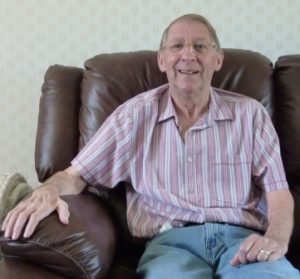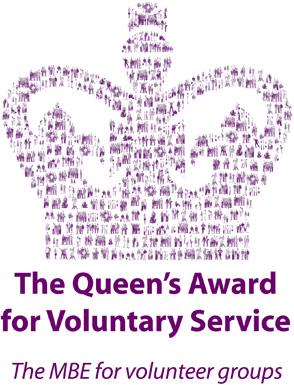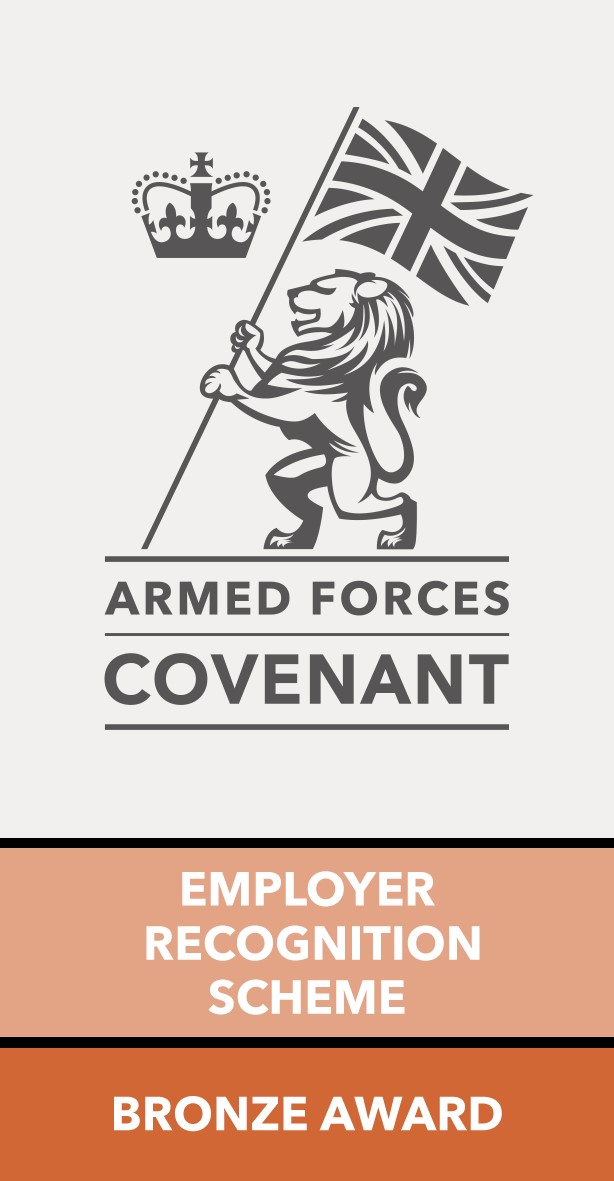 In recent years the number of people we help who do not have cancer has risen dramatically. In the last four years alone we have seen an increase 58 per cent, meaning we are caring for more people with non-cancer life-limiting illnesses than ever before.
In recent years the number of people we help who do not have cancer has risen dramatically. In the last four years alone we have seen an increase 58 per cent, meaning we are caring for more people with non-cancer life-limiting illnesses than ever before.
Laurie Burke, from Sambrook, is one of the many patients we help who does not have a cancer diagnosis. He was referred to our complementary therapy clinic at our hospice in Shrewsbury in 2014 for treatment for Motor Neurone Disease (MND).
“When my doctor first mentioned referring me to Dr Stockdale at the hospice it wasn’t until I got home that I thought about what he had said. For me hospice equalled end of life care which freaked me out slightly,” says Laurie. “I thought I was doing well until someone mentioned the word ‘hospice’. I had never been in a hospice but you hear things on the news about people going there to die.”
With an array of specialist services on offer, there are many reasons why someone might be referred to the hospice. Complementary therapy is one such service which we provide to help alleviate pain or other distressing symptoms a patient may be experiencing as part of their illness.
“I was offered five complementary therapy sessions at the hospice in Shrewsbury,” says Laurie. “The hospice also offered to pick me up and drop me off at home which was great. I’ve had reflexology before, I don’t think about what it does or how it does it I just know it works for me and I enjoy it.”
Laurie reveals what his first visit to the hospice was like and how it has made a difference to him.
“The first time I went to the hospice I didn’t know what I would find but I thought why not give it a go. As soon as I walked through the door I don’t think I have ever been so relaxed in my life. The first person I met was working on reception, I said ‘good morning my name is Laurie Burke and I have an appointment for some complementary therapy’. They asked me to sign in and I said ‘I’m afraid I can’t’, she simply smiled at me and said no problem, wrote my name in the book and asked me to take a seat. I thought wow, normally when you go into any business they ask you to sign the book and you say you can’t they say you HAVE to as its fire regulations.
“No sooner had I got my bum on the seat they asked me if I would like a cup of tea. I just couldn’t believe the reception you get when you walk through the door. The therapist came out to introduce herself, she gives me the treatment, we have a nice conversation and that carries on for five sessions. On the fifth instalment we were sitting in the treatment room and the therapist said to me ‘That’s not the last time I will hold your feet, I will put you on the list so when we have a cancellation we will give you a call to see if you would like to come over. You are part of the hospice family now’. I thought I’m in heaven.
“Whenever I come away from the place I float away and think wow what a beautiful day. My wife says to me she knows when I have been for a treatment because I’m so full of beans.
“I’m just absolutely gobsmacked by how everyone at the hospice goes about their daily business. They are obviously meeting people who have a terminal illness but their attitude is just so positive, it’s unbelievable. There is no labelling, they just look after you. None of the staff or volunteers look at you and say ‘it’s a shame isn’t it’, they just focus on life and making the most of each day.
“When you come to the hospice its like going on holiday for the day away from all the worries and thoughts of whatever you’ve got. It’s a break from your normal surroundings, your normal environment. It lifts you the minute you walk through the door, it’s really hard to explain what that feeling is. I don’t think it matters if it’s MND or any other terminal illness I imagine the effect is the same for all the people at the hospice.”
All of the specialist care our hospice provides is free of charge for our patients and their loved ones but not without cost. We are very fortunate to be so well supported by the local communities we serve who help raise the £6.17 million in voluntary income we need every year to fund our vital services.
“I think without people raising the money needed to run the hospice some people wouldn’t be able to cope with terminal illness,” says Laurie. “The hospice has the time and skills but needs the money to survive and continue to provide care. People who have terminal illnesses need places like the hospice. They have such an understanding of the people they see where you are more than just a name or a number on a board above a bed.
“The hospice has to survive, not just for my benefit but for the other people who come along and need their help. These terminal illnesses will not disappear and will not be solved over night. There will always be a need for the care the hospice provides.”






